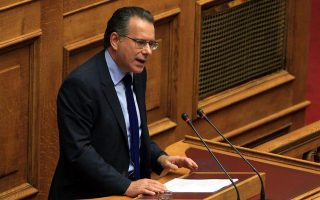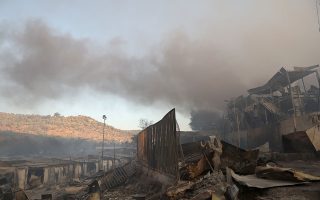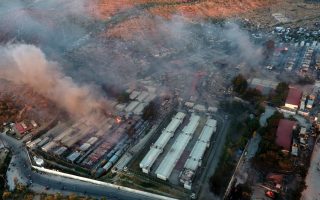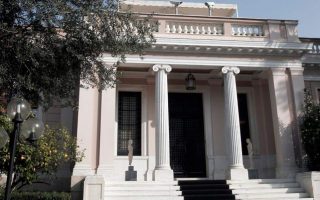Blaze guts Greek refugee camp, thousands flee amid Covid-19 worries
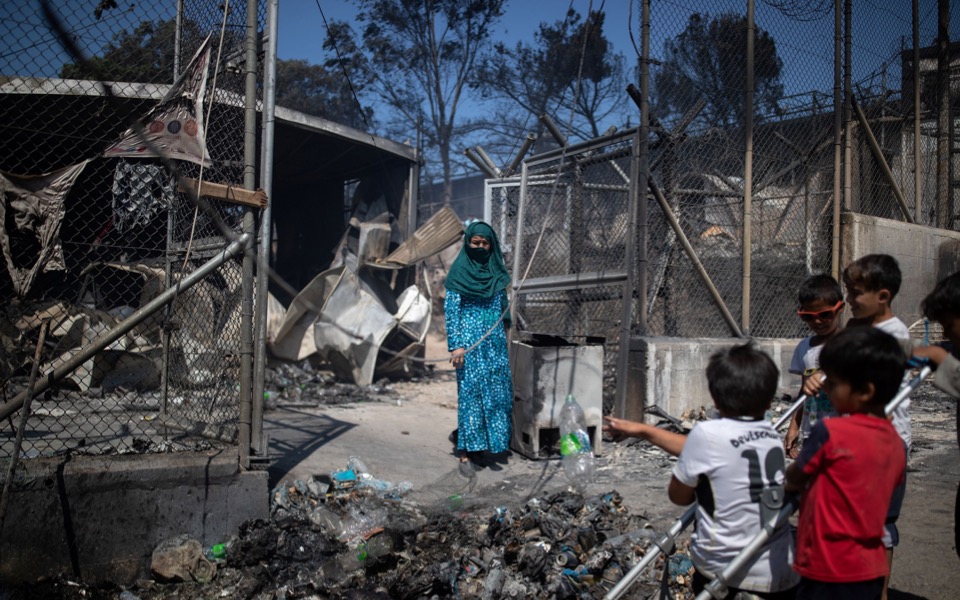
Thousands of migrants roamed homeless around the Greek island of Lesbos on Wednesday after fleeing overnight fires that gutted their overcrowded camp, and authorities worried that some asylum seekers who tested positive for Covid-19 could spread the virus.
A senior Greek official said the Moria camp, which hosts more than 12,000 people, was "probably totally destroyed". Athens declared a state of emergency on Lesbos and sent police reinforcements to the island, off Turkey, to help keep order.
Deputy Migration Minister George Koumoutsakos said about 3,000 migrants and refugees would be temporarily housed in tents as the government struggles to find alternative shelter for the migrants, some of whom were now camped out in fields nearby.
The cause of the fires was not yet known but authorities were investigating whether they were started deliberately.
The fire broke out just after midnight and by dawn on Wednesday most of the camp was a smouldering mass of burnt containers and tents, with a few people searching through the debris for their possessions.
The whereabouts of 35 migrants who tested positive for Covid-19 this week were unknown. The camp had been placed under quarantine last week after an asylum-seeker tested positive.
"There was not just one but many fires in the camp. Migrants threw stones at firefighters trying to put out the fires. The cause is under investigation," Constantine Theophilopoulos, fire brigade chief for the northern Aegean, told ERT TV.
Initial reports suggested the fires broke out at different locations in the sprawling camp after authorities tried to isolate some individuals who had tested positive for Covid-19.
"The camp has been evacuated. All these people are on the national road towards (the town of) Mytilini," said Panagiotis Deligiannis, a witness from Moria.
"There are police out who are not letting them through. These people are sleeping left and right in the fields."
Aid groups have long criticised conditions at the camp, which hosts more than four times its stated capacity. They say it is impossible to implement social distancing and basic hygiene measures there.
"TRAGICALLY PREDICTABLE"
The UN Refugee Agency, UNHCR, said it had received reports of tensions between people in neighbouring villages and asylum seekers who were trying to reach Mytilini town.
"Events in Moria last night are unthinkable but tragically predictable as the dire situation on the islands has gone on for far too long," said Dimitra Kalogeropoulou, International Rescue Committee Greece Director.
Greek authorities put Lesbos under a state of emergency for four months for public health reasons, allowing them to mobilise all forces to support the asylum seekers and island residents.
Mytilini mayor Stratis Kytelis said migrants would have to be moved or housed on ships to prevent the spread of COVID-19.
Argyris Syvris, a policeman, told Open TV that police had been forced to release some 200 people who were due to be repatriated to their countries.
Greek Prime Minister Kyriakos Mitsotakis held an emergency cabinet meeting on the situation, and the migration and interior ministers headed to Lesbos.
Government spokesman Stelios Petsas said camp residents would not be allowed to leave Lesbos due to the pandemic, though EU Home Affairs Commissioner Ylva Johansson said the European Union had agreed to fund the immediate transfer of 400 unaccompanied children and teenagers to the Greek mainland.
German Foreign Minister Heiko Maas described the fires as "a humanitarian disaster", and said EU member states should be ready to take in some of the refugees from the camp.
Boris Pistorius, interior minister of the north German state of Lower Saxony and an influential figure in Germany's Social Democratic Party (SPD), said it was time to shut the Moria camp.
"This overfilled camp is the symbol for the failure of Europe's asylum policy. It has made effective prisoners of its people," he said, urging Germany and the EU to find a way of dispersing the refugees around the bloc.
Lesbos was on the front line of a mass movement of refugees and migrants to Europe in 2015-2016.
[Reuters]
